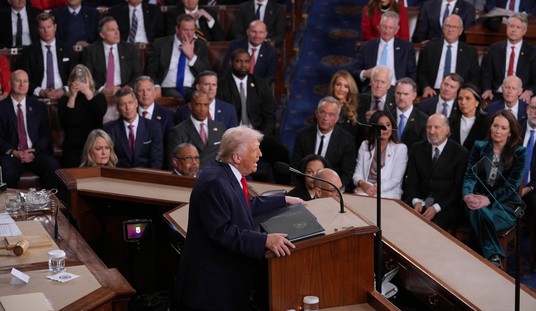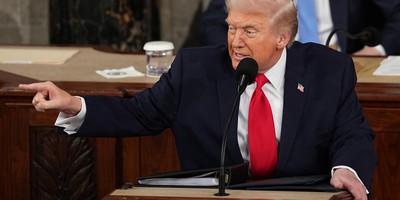A mother’s love for her child goes beyond genetic makeup -- a truth Michelle Sie Whitten knows all too well as she beams about her 10-year-old daughter, Sophia, who just happened to be born with an extra chromosome.
Whitten, the executive director of the Global Down Syndrome Foundation in Denver, Colorado, spoke with Townhall about her passion for improving the lives of people with Down syndrome, including her own precious daughter, whom she gave life despite a counselor prompting her to terminate her pregnancy.
There is an understood mantra at the Global Down Syndrome Foundation, where employees work hard to achieve funding for research, medical care, education and advocacy, that people diagnosed with Trisomy 21 are not disabled; they’re “differently abled.” Whitten strongly believes in their efforts because caring is like second nature to her.
“I feel like I was born with a righteous gene,” she said. “Out of all my siblings, I was the one always sticking up for kids on the playground. I feel very strongly about race discrimination, and then gender discrimination as I got older.”
Whitten's passion for others was challenged by the news and pressure that was to come when she and her husband were 18 weeks pregnant with their first child. Upon seeing her amniocentesis that revealed her daughter had Down syndrome, Whitten described what she deemed as a “horrible experience.”
Recommended
“I got the amnio at 18 weeks, then the genetics counselor showed a video," she said. "I remember it like yesterday. I could tell it was poorly done. It started by showing a child with Down syndrome and the narrator said, ‘There is an X percent chance your child will die in utero, there is a Y percent chance your child will die before age one, there is a Z percent chance your child will die before three. If your child lives, he or she will be susceptible to a number of medical conditions.’”
The video proceeded to list the possible medical conditions for what Whitten said seemed like an “eternity.” After the amateurish video finished, the genetics counselor returned and told her, “80 to 90 percent of parents abort children with Down syndrome, and you can too.”
Whitten recognized the counselor’s voice as the video narrator.
Justifiably suspicious of the counselor’s suggestions, Whitten did a little research herself. She went home and googled ‘Down syndrome’ and discovered that people with the disorder have lived to a healthy 50 years and more, versus dying in infancy like the counselor's video suggested. This sleuthing, along with opportunities that allowed her to meet other children with Down syndrome, led Whitten to ultimately choose life for her daughter -- a courageous decision that came with frightening unknowns.
“I had a lot of questions, so afraid my child would not be able to do anything. What it means to be in high school, the social pressures -- add to that Down syndrome. And what happens when I’m old and she outlives me? The unknown was scary, I imagined the worst, imagined my baby as a three-eyed monster.”
Now, having gotten to know her beloved daughter, Whitten can’t imagine life without her.
“It’s been such a gift, she’s opened my eyes to the beauty of brilliance,” she said. "I’m not very religious, but I consider her a blessing.”
Whitten also has a son, Patrick, who is now seven. At five-years-old, Whitten explained how he finally asked if his sister was different. He, along with Sophia’s elementary school classmates, helped create an accepting environment by failing to notice any oddities in her.
“There was no label, she was just Sophia," Whitten said. "Nobody questioned it. They treated her like any other kid, so she acted like one."
Whitten’s message to anyone connected to a child with Down syndrome is five-fold.
1. It’s normal to feel afraid.
2. Don’t sugarcoat it.
3. There are challenges with all kids.
4. Don’t lower your expectations.
5. Put them on a path to success.
Down syndrome is the least-funded genetic condition in the United States, according to the Global Down Syndrome Foundation, and if the surveys prove true, Americans overwhelmingly support the work the organization is doing. This encouraging poll, coupled with good news from North Dakota, which became the first state to ban abortions based on Down Syndrome, are all leading to a more accepting culture for those with special needs.
Whitten, a beaming mother who already sees the strives Sophia has made, couldn't help sharing her joy one more time before our conversation ended.
“I love her, I love who she’s become, and I love how she surprises people.”
























Join the conversation as a VIP Member